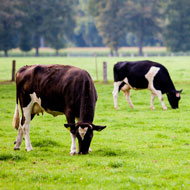
Chemical contaminants higher than other groups of substances
Non-compliance in veterinary drug residues remains low, according to figures published by the European Food Safety Authority.
Monitoring data from 2016 show that unauthorised substances and contaminants found in food-producing animals suggest high rates of compliance.
The figures come as regulations to strengthen the assessment of maximum residue limits are introduced by the European Medicines Agency.
The EU monitors veterinary drug residues to help protect animals and consumers. A total of 710,000 samples were reported in 2016, from 27 of the 28 EU Member States.
The 2016 data show that the percentage of non-compliance in targeted samples was 0.31 per cent, which is the range of 0.25 per cent to 0.37 per cent reported over the previous nine years.
Non-compliance for chemical contaminants like metals was higher than for other groups of substances. Non-compliance for resorcylic acid lactones, mycotoxins and anti-thyroid agents all decreased in 2016.
The highest and lowest frequencies of non-compliant samples for non-steroidal anti-inflammatory drugs and antibacterials, respectively, were reported in 2016 in comparison to previous years.



 The latest
The latest